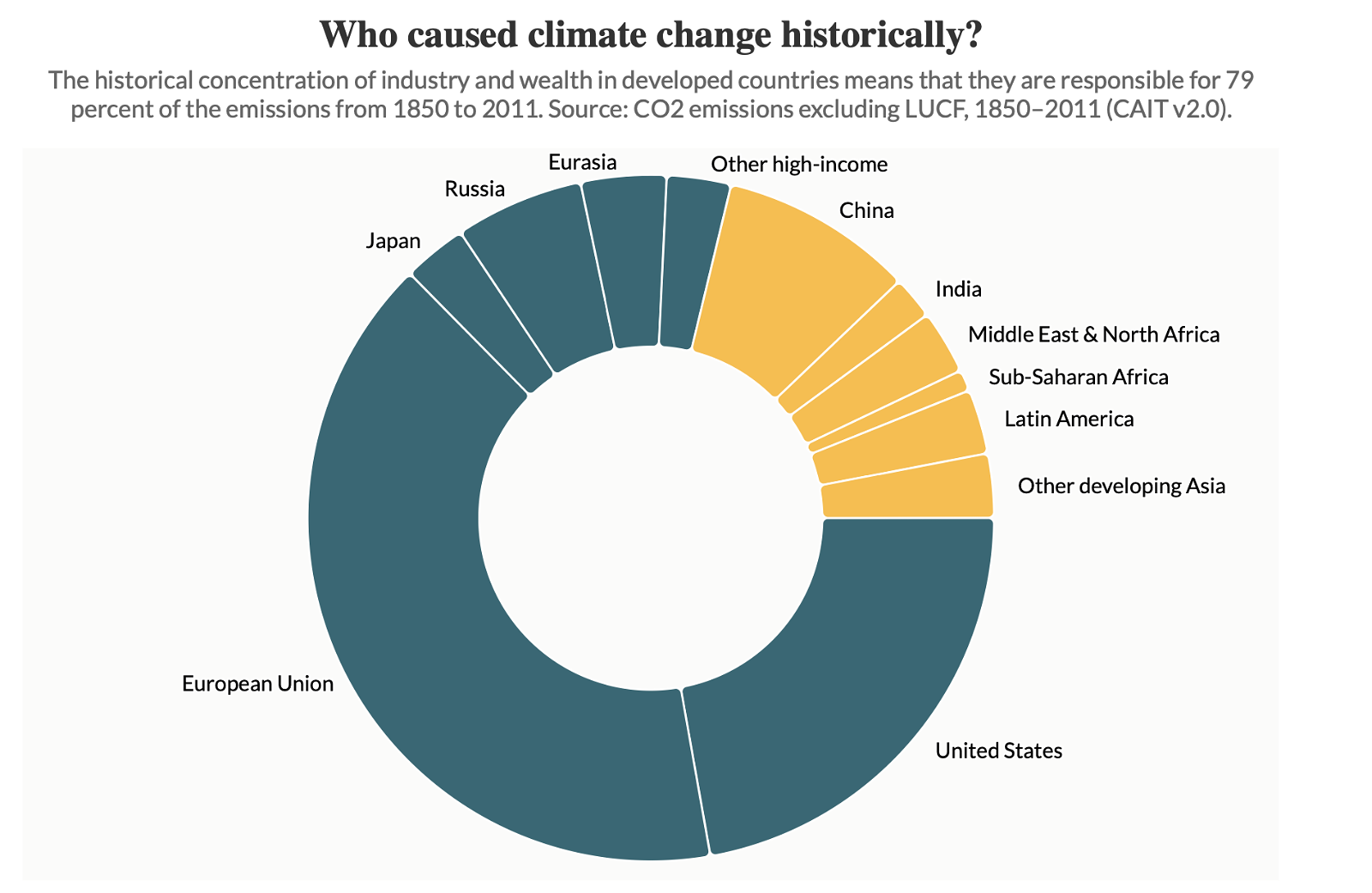Bloc profile: the G77 at COP28


· 6 min read
The Group of 77 (G77) is the largest bloc representing emerging economies with over 135 member countries. It was founded in 1964, at the first session of the United Nations Conference on Trade and Development (UNCTAD) with its first meeting taking place in 1967. This article will have a look at the primary objectives of this bloc at the conference. It will also discuss their agenda in Dubai and assess which of their respective goals align with COP28’s objectives.
The primary objective of the G77 is to have their concerns heard by policymakers at COP. The narrative around energy transitions and the climate crisis needs a dire overhaul. The G77 would want (or should want) the gathering at COP28 to acknowledge that:
It is promising to observe that these concerns align with the agenda and priorities at COP28. According to one estimate, we need to increase our renewable capacity three-fold by 2030. Others seem to echo this concern as the world has witnessed an uptick in climate-related catastrophes. The EU has called for an expedited reduction in emissions. Both COP28 & the G77 are looking for “collaborative actions” on preserving food systems, adaptation and focusing on the aspect of inclusivity that is often missed and absent from the discourse. The Presidency of COP28 and the Presidency of the G77+China are said to be working together on the various challenges regarding environmental issues.
If we look at the past contributions of developed or industrialized countries to global warming and climate crisis, the results are eye-opening and give us a preview of why it was the duty of Western countries to listen to the G77 and their concerns. According to the Center for Global Development, developed countries accounted for 79 percent of emissions between 1850 and 2011. Another study by Oxfam points out that 125 billionaires are each responsible for one million times more GHG emissions than the normal/average person. About 71 percent of emissions on a global level can be attributed to only 100 fossil fuel producers. If we dig further, it becomes even more absurd with research showing that only 23 developed countries are responsible for more than half of all the historical contributions (read that again).

It is pertinent to mention that the G77 stresses upon the principle of "common but differentiated responsibilities" which is also recognized in international environmental agreements like the United Nations Framework Convention on Climate Change (UNFCCC). This principle builds on the Just Energy Transitions framework which claims that while all countries are responsible for tackling global ecological degradation, history and facts bear witness that not all of them should shoulder the same level of responsibility, nor carry the same capacity to resolve this policy issue.

So far things are looking promising with countries making pledges to the cause of climate change. Recently Joseph Stiglitz argued that the rich countries should give $100 billion to poor ones in order to support climate efforts. Ha-joon Chang has written in the Financial Times that the biggest issue for energy transitions is the issue of financing. So far, countries have pledged $400 million in lieu of the Loss and Damage fund. The UAE has committed $100 million, UK only $50.5 million (ironically), Japan $10 million, and the U.S., despite the hue and cry about climate leadership, $17.5 million.
There will be more promises but we need more. More than just a few million dollars, We need billions. We need upgrades in regulatory frameworks. We need focused and consistent efforts. We need technical support. We need attention. The current geopolitical and economic conditions, with even high-income countries touching high levels of debt, make a coordinated effort difficult in this regard. There needs to be peace first and then cooperation.
The most important point is that COP28 isn’t the end but a means to an end that spans over decades, if not a century, of hard work and policy tweaks. It remains to be seen how these countries will act after the gathering in Dubai concludes.
illuminem Voices is a democratic space presenting the thoughts and opinions of leading Sustainability & Energy writers, their opinions do not necessarily represent those of illuminem.
Subscribe to our COP28 newsletter here to get comprehensive coverage of the world's largest climate conference delivered straight to your inbox.
This article is featured in illuminem's Thought Leadership series on COP28 proudly powered by Tikehau Capital.
illuminem briefings

Climate Change · Effects
illuminem briefings

Oil & Gas · Ethical Governance
illuminem briefings

Climate Change · Insurance
Al Jazeera

Effects · Climate Change
Forbes

Sustainable Living · Climate Change
Japan Times

Climate Change · Effects